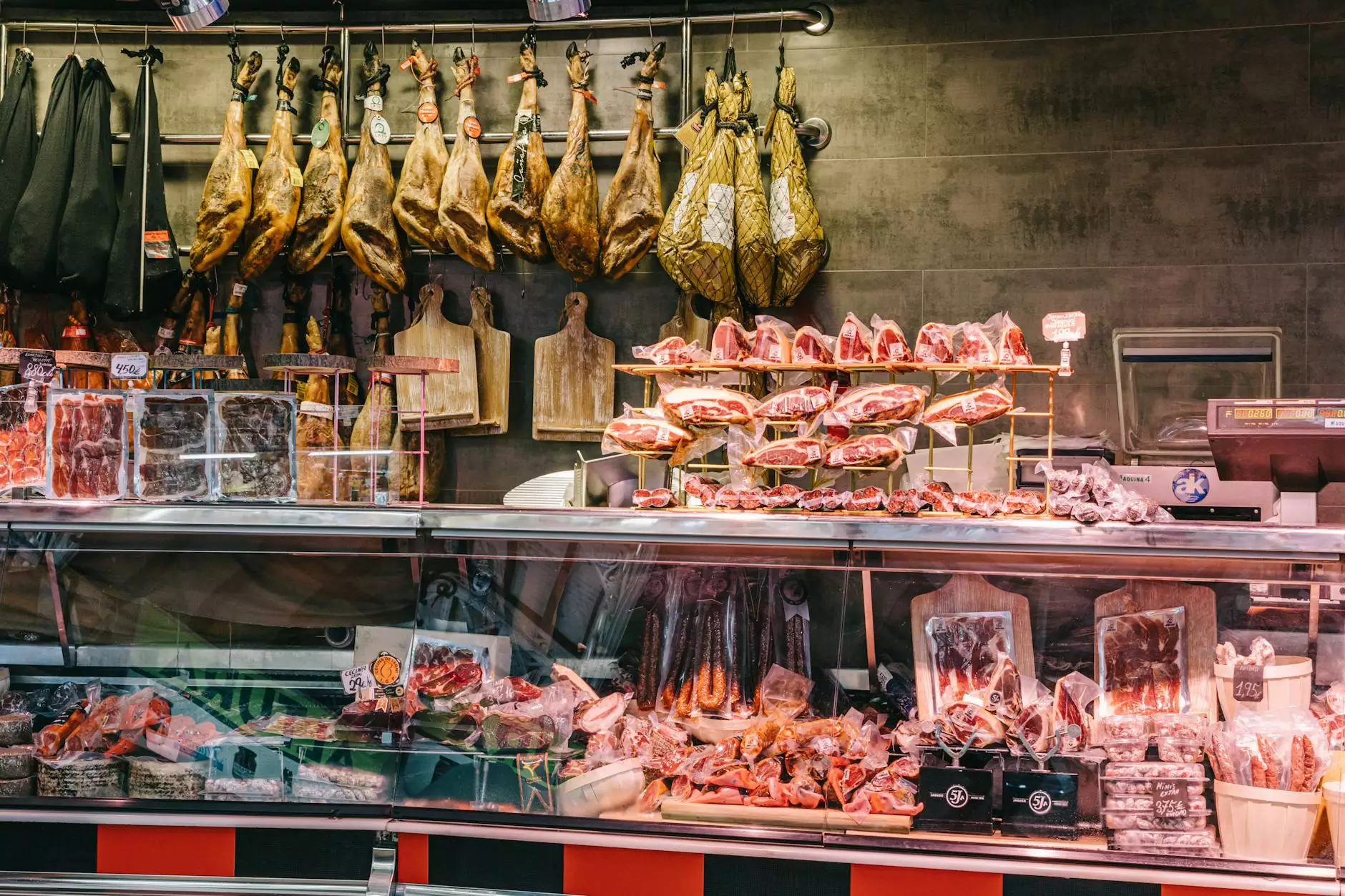The Art of Butchery: Elevating the Meat Business

In the vast landscape of the food industry, the role of meat butchers has not only remained essential but has also evolved into an art form. The business of selling quality meats, especially in specialized shops like uymeats.com.uy, is a fine interplay of skill, tradition, and customer service. This article aims to delve into the world of butchery, focusing particularly on imported food and meat shops, and offering insights into how these businesses can thrive in today’s market.
Understanding the Meat Business Landscape
The meat business is more than just a retail service; it encompasses a broad spectrum of operations including sourcing, handling, and selling various types of meat products. The importance of quality in this sector cannot be overstated as customers are becoming increasingly conscious about where their food comes from and how it is processed. By understanding the dynamics of this landscape, meat shops can better position themselves for success.
Types of Meats and Their Popularity
- Beef: Known for its rich flavor and versatility, beef remains a staple in many diets worldwide. From steaks to ground meat, the variety available is vast.
- Pork: Another favorite, pork is prized for its tenderness and flavor. Different cuts can be utilized in a myriad of recipes, making it a popular choice among consumers.
- Poultry: Chicken and turkey are lean meats that are widely sought after for their health benefits. They are also adaptable in numerous cuisines.
- Lamb: Often considered a delicacy, lamb has a distinct flavor that appeals to niche markets. Its texture and taste are prized in gourmet cooking.
What Makes a Good Meat Butcher?
Exceptional craftsmanship is at the heart of a successful butchery business. A good meat butcher not only needs to know how to cut and prepare meat but also understand the nuances of different cuts and their suitable uses. Here are some qualities that set apart a remarkable meat butcher:
1. Skill and Precision
Precision is key in butchery. A skilled butcher must know how to navigate the anatomy of animals and utilize every part effectively. This includes:
- Understanding how to maximize yield while minimizing waste.
- Employing various cutting techniques to produce specific cuts as per customer requirements.
2. Knowledge of Meat Quality
Quality control is imperative in meat sales. A knowledgeable butcher understands the differences in meat quality, including:
- Different grades of meat and factors that affect quality.
- How to select the best cuts for different uses, ensuring satisfaction for customers.
3. Customer Service Skills
A great butcher isn't just a meat expert; they are also a fantastic communicator. Building relationships with customers, understanding their needs, and offering recommendations can significantly boost sales.
The Importance of Source and Sustainability
With the rise of environmentally conscious consumers, the sourcing of meat has become a significant factor in the purchasing decision. Sustainable practices not only attract customers but also contribute positively to the environment. Here are key considerations:
1. Sourcing from Responsible Farmers
Meat shops can enhance their reputation by sourcing products from farmers who practice humane treatment of animals and sustainable farming methods. This practice aligns with rising consumer demand for ethically sourced products.
2. Transparency
Customers appreciate knowing where their food comes from. Offering transparency about sourcing practices can build trust and encourage loyalty. Retailers that share their supply chain story often find a positive response from health-conscious consumers.
Trends in the Meat Industry
The meat industry undergoes constant evolution, with trends shaping how businesses operate. Staying updated about these trends is crucial for meat shop owners. Here are significant trends to observe:
1. Rise of Online Meat Delivery
The convenience of online shopping has penetrated the meat industry. Offering online ordering systems, like those available on uymeats.com.uy, allows customers to select their preferred cuts and have them delivered fresh.
2. Plant-Based Alternatives
Although traditional meats dominate, the growth of plant-based alternatives is significant. Butcher shops can consider diversifying their product lines to include these options, catering to a broader customer base.
3. Specialty Cuts and Artisan Products
The market is seeing a growing interest in specialty cuts and artisan meat products. Craft meats, which are often cured or smoked, are gaining popularity among food enthusiasts.
Building a Successful Meat Business
To build a thriving meat shop, several strategies can be employed:
1. Invest in Marketing
A robust marketing strategy is essential for reaching new customers. Here are effective marketing ideas:
- Utilize social media platforms to showcase products and share recipes.
- Engage with the community through local events and promotions.
2. Offer Butchery Classes
Many customers are keen to learn cooking skills, including how to properly handle and cook meat. Offering butchery workshops can expand your customer base and foster community.
3. Leverage Customer Feedback
Listening to customer feedback is invaluable. Implementing suggestions not only improves products and services but also demonstrates that customers’ opinions are valued.
Conclusion
In conclusion, the role of a meat butcher is multi-faceted, requiring a blend of artistry, knowledge, and customer service skills. Businesses like uymeats.com.uy embody these principles, offering quality imported meats and understanding the significance of sustainable sourcing. By staying informed about industry trends, focusing on customer relationships, and continually enhancing their craft, meat shops can not only survive but thrive in this competitive space, paving the way for a robust future in the meat business.









